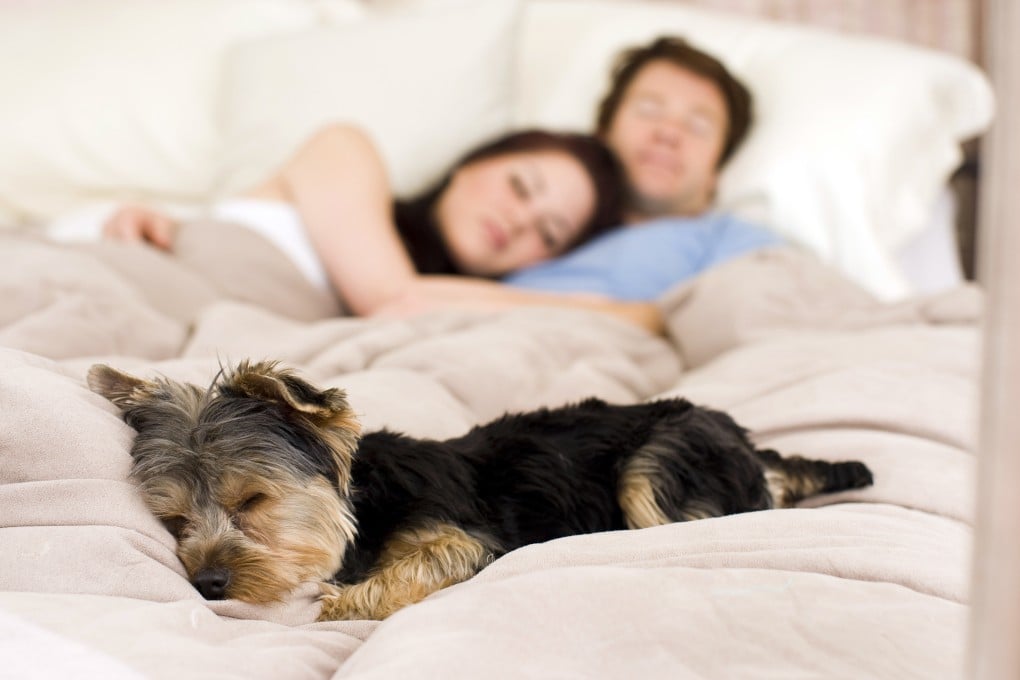How to sleep well: have a dog in your room, share your bed with a partner (but not the dog). And amid the pandemic, expect weird dreams
- Sleep plays a key role in physical and mental health; recent research suggests the best ways to get the most of your night’s rest
- Should your dog sleep in your bed? Researchers are split, but having a dog is linked to better sleep than having a cat

As more becomes known about the effects of sleep on our overall physical and mental health, research into this area is increasing.
We look at some recent research papers on sleep – and how to get more of it.
Are your pets damaging your sleep?

Pets are known for their ability to help alleviate depression, but some of them may be negatively affecting your sleep. New research led by Lieve van Egmond in the Department of Neuroscience at Uppsala University in Sweden, published in online journal Scientific Reports, measured pets’ impact on achieving the recommended seven hours sleep each night, on sleep quality, and on falling and staying asleep.
Dogs were not found to affect their owner’s sleep, but cats are a different story. Researchers say this may be because cats tend to be active at dawn and dusk, disturbing their resting owners.
The additional exercise gained by walking a dog did not have a noticeable effect on sleep. The research showed that owners who let their dog sleep on the bed, rather than just in the room, reported a less restful night.